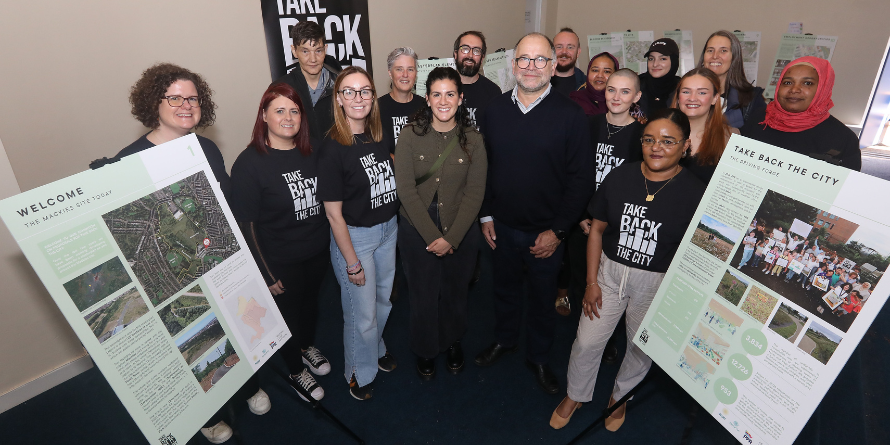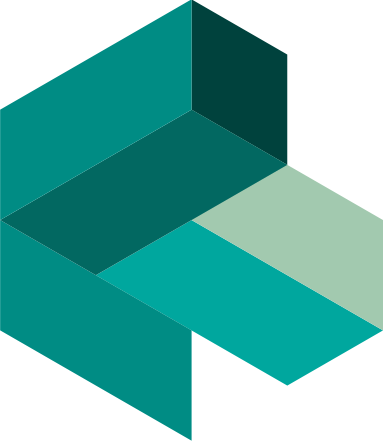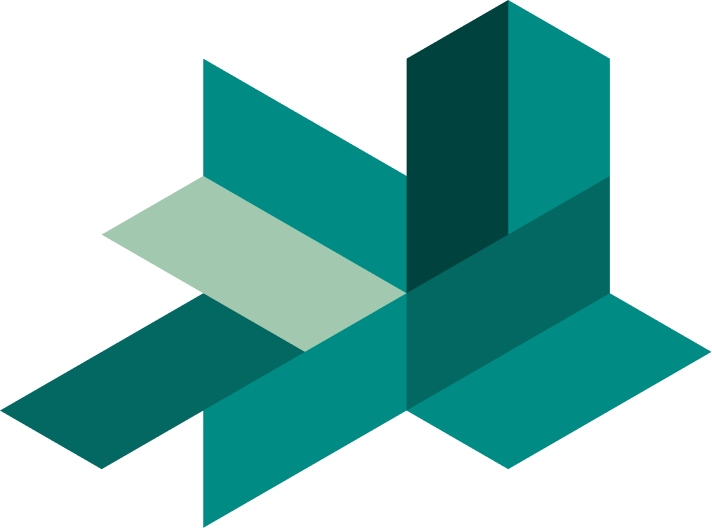Support the MAC – Give Today

MACtivate is a dynamic incubator for change, using creativity and action-based research to address some of Northern Ireland’s most pressing social issues, including migration, housing, poverty, racism, and LGBTQ+ discrimination.
Join the conversation about The State of Belfast
Alongside The State of Belfast exhibition, we’re hosting a series of talks, workshops, screenings and creative actions that open up urgent conversations about Belfast today, and the future we want to build.

The Rent Strike with CATU Belfast | Wed 23 July | 6.30pm | Age: 16+ | Free, Booking Required
CATU Belfast (Community Action Tenants’ Union) will host a screening of THE RENT STRIKE, a documentary film which celebrates the 1970-1973 Irish rent strike action.

Our Housing Crisis: What is to be done? | Fri 25 July | 1pm | Free, Booking Required
Participation and the Practice of Rights (PPR) will lead a conversation exploring the history of the housing struggle in Northern Ireland, from its roots to today's solutions.
This talk and public conversation will be set in The State of Belfast exhibition where we can collectively explore the history of the current housing crisis through timelines and artifacts. We will ask who is to blame, who is not to blame, what do we do? What can we do?

Signs in Solidarity: A Signwriting & Advocacy Workshop Facilitated by Laura Nelson | Fri 1 August | 11am-4pm | Age: 16+| £10
Join visual artist and signwriter Laura Nelson for a hands-on workshop where creativity meets activism.
Signs in Solidarity invites participants to design and create powerful placards, banners, and signs advocating for affordable social housing. This welcoming and supportive workshop offers a space to connect with others and raise your voice through visual expression. You'll learn sign-making techniques, drawing inspiration from the rich history of protest signage and its makers.

The Sonic Railroad: Tracing Solidarity Through Music | Thu 7 August | 6.30pm-8pm | Free, Booking Required
Noah Totten, a musician who performs a fusion of trad and jazz music as redbrd, will present a seminar that uncovers the hidden roots of both ancient and contemporary music, and how they reveal evidence of trans-continental solidarity and organisation from the years BC to the present day.

Saving Cathedral Quarter | Thu 14 August | 5pm-6.30pm | Age: 18+| Free, Booking Required
Join us for a walking tour of Cathedral Quarter where we will be discussing the area’s recent decline and future potential.
Drawing on our architectural research and activism with the 'SaveCQ' campaign, we will be encouraging conversations on urban heritage, mixed-use development, housing in the city centre, gentrification and neoliberal urbanism.

Writing Home: A Poetry Workshop on Housing Rights Led by Damian Gorman | Sat 16 August | 11am-4pm | Age 18+| Free, Booking Required
Join award-winning poet and writer Damian Gorman for a powerful one-day workshop exploring housing inequality through poetry.
This workshop is for anyone who wants to give voice to their experiences, frustrations, and hopes around housing and home. Through guided writing sessions and group discussion, you'll learn how to shape your thoughts and stories into poetic form—whether you're a seasoned writer or trying poetry for the first time.

Homes for Belfast: A Creative Workshop for Kids Imagining a Better City Through Art and Play | Sat 16 August | 11am-1pm | Age: 7-11 yrs | £7
In Homes for Belfast, children are invited to dream big and build bold! This hands-on workshop encourages young minds to design and create homes using recycled materials, while learning about the city around them.

Hearsay at Point Zero: Screening and walk with artist Marta Dyczkowska | Sat 30 August | 12pm-2pm | Age: 18+ | £5
Join Marta Dyczkowska for a screening of her film Hearsay at Point Zero exhibited in the MAC Sunken Gallery.
Following the film, Marta will provide a brief introduction and guide you through the streets of Belfast and film locations, aiming to gather collective memories of the area through oral and creative testimonies. The memory mapping of North Street will commence at Point Zero (Assembly Rooms, also known as Four Corners) and will extend to Carrick Hill, covering distance of 0.6 miles.

A new vision for housing: In conversation with Matthew Lloyd and PPR's Take Back the City Activists | 5 September | 6:30pm - 8pm | Free, Booking Required
Participation and the Practice of Rights (PPR) Take Back the City (TBTC) activists are joined by Matthew Lloyd, award-winning architect of TBTC’s Mackie’s Masterplan to take a closer look at how this 25 acre brownfield site in Belfast of public land can be used to address the crisis in social housing supply, in a way that respects communities, climate and health.
Matthew Lloyd Architects are an award-winning RIBA Chartered Practice based in Shoreditch, East London, who have won recognition for sensitive, innovative, contextual architecture in urban settings. Together the panel will discuss land justice, rights based approaches and how the participation of homeless families in planning and design processes ensures that future housing developments address current societal issues as well as protect and foster sustainable living for our future generations.

Thinking of Home through Geopolitics, Memory and Justice | Tue 9 September | 3pm-5pm | Age: 16+ | Free, Booking Required
What does “home” really mean in a world shaped by inequality, displacement, and struggle?
In this lecture-performance, Dr. Azadeh Sobout invites us to rethink the idea of home—not just as a place to live, but as a site of resistance and a lens through which we can confront systems of power, colonialism, and injustice. Challenging the mainstream push to simply “build more housing,” Dr. Sobout explores deeper questions: What if housing itself could help us reimagine care, community, and belonging?

Reimagining Home Together: Tackling NI's Housing Crisis | Sat 13 September | 2pm-3.30pm | Free, Booking Required
Join us at the MAC on Saturday 13 September for a workshop to explore student proposals for the Mackie’s site, developed by the StreetSpace studio at Queen’s University.
This event invites discussion on a spatial plan tackling Northern Ireland’s housing crisis through a design-led, human-centred approach. In partnership with PPR's campaign Take Back the City and international research project Change Stories, this project reimagines public land for inclusive housing with all the services and amenities needed for a good quality of life.

Mini Architects – Let’s Design a City | Sat 20 September | 11am-1pm | Age: 7-11yrs | £7
In this imaginative workshop, children become Mini Architects, using drawing and collage to dream up a city where everyone has a home.
With the help of local artists, kids will explore what makes a home—and a city—welcoming and fair for all. They’ll create vibrant, mixed-media artworks that show their own designs for houses, neighbourhoods, and community spaces that leave no one behind.
Programmed as part of The State of Belfast exhibition. The State of Belfast uses Grenfell by Steve McQueen as a stepping off point to address the inherent injustices and inequality as well as issues of race and poverty which are inextricably linked to the Grenfell tragedy. The State of Belfast explores how these same conditions exist in Belfast and how we might collectively address them.
This national tour of Grenfell is being coordinated by Tate in collaboration with the partner venues and is made possible thanks to support using public funding by the National Lottery through Arts Council England and from Art Fund. Each presentation will be free to visit and will be accompanied by a public engagement programme of talks, workshops and community events supported by the Grenfell Foundation.
Supported by:

With thanks to our funders:

Bridges Through Dance – Uniting Communities Through Movement
Led by Mexican artist Mar Decena

Bridges Through Dance is an inspiring project that connects communities through movement. Mar Decena, a renowned expert in Middle Eastern dance, will train professional dancers in Bellydance, Saidi, and Dabke, exploring fluid movement chains, improvisation, and rhythm. Accompanied by live darbuka music, dancers will deepen their connection to authentic rhythms.
Mar is fostering meaningful connections between women in the asylum system, refugee women, and local communities. These interactive workshops introduce Middle Eastern dance in a social and inclusive format, where participants not only learn movement but also engage in discussions on cultural expression and connection. Through guided reflection and group interaction, the project highlights how movement transcends language and builds bridges between people.
Originally from Mexico—one of the world’s hubs for Middle Eastern dance—Mar brings over 20 years of experience and a deep passion for promoting Arabic culture through dance and music. She has trained extensively with Egyptian masters and internationally renowned instructors, refining her skills in Bellydance, Saidi, and Dabke.
Supported by the Arts Council of Northern Ireland's National Lottery Minority Ethnic.
New Theatre: Young Voices on Stage
In partnership with leading charity Extern, we are collaborating with 20 young people from Belfast, Drogheda, and Dublin to develop an original theatre production with renowned playwright Tony Macauley. This powerful piece will explore the lives, experiences, and perspectives of these young people.
The production will take centre stage at The MAC (Upstairs Theatre) on 28th & 29th November 2025.
This project is proudly funded by Creative Ireland.

